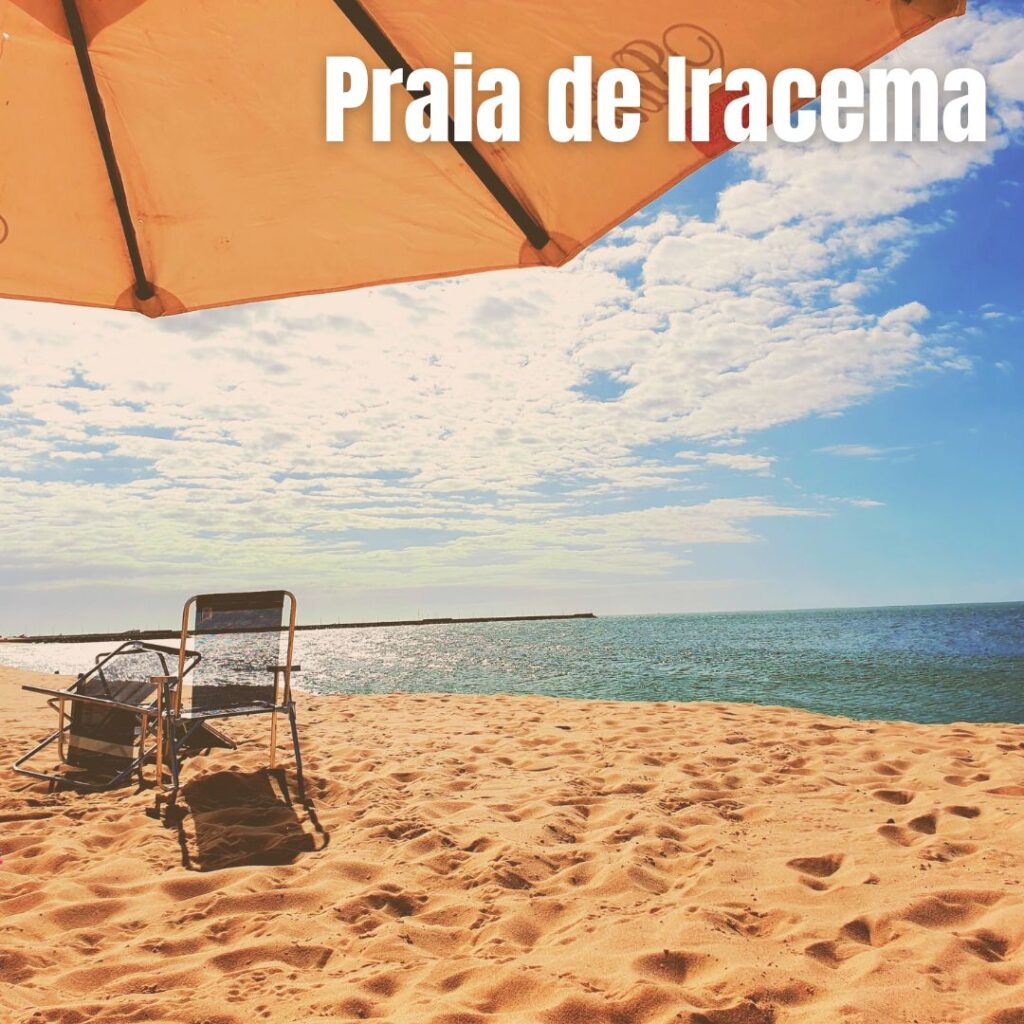How to Buy or Rent Real Estate in Praia de Iracema
Fortaleza is a city that invites you to stay. Whether it’s for the beaches, the vibrant culture, the outdoor lifestyle, or the welcoming energy, it’s not uncommon for a simple visit to spark the desire to stay for good — or to invest. And among all the corners of the capital of Ceará, Praia de Iracema stands out as one of the most desirable neighborhoods, both for those who want to live there and for those looking for a good deal.
But buying or renting a real estate in the region goes far beyond analyzing the price per square meter or knowing if the apartment has a balcony with a sea view. There is a legal, financial, and even emotional backdrop that few people talk about. And understanding each of these details can save you headaches — and turn your move (or investment) into a smooth process.
This guide was created for that purpose: to shed light on what almost no one explains.
Complete guide to Fortaleza HERE!
Why does Praia de Iracema attract so many people?

Anyone walking through its streets will soon realize that Iracema Beach has a rare blend of historic charm and modernity. On one side, there are old buildings with preserved architecture. On the other, there are new developments with leisure areas, sea views, and great potential for appreciation.
It is a lively, cultural area, full of leisure options, bars, markets, and events. The presence of the Dragão do Mar Center for Art and Culture, for example, is a symbol of how art and urban life intertwine there. In addition, its strategic location—between the Center, Meireles, and Aldeota—makes it easy to get around the city.
Iracema Beach is also highly sought after by tourists, digital nomads, and investors in temporary rentals, which reinforces its potential in the vacation rental market.
Documents you will need to purchase a property — and why they matter
Buying a property in Brazil requires more than just signing a contract. There are a number of documents that guarantee the legality of the transaction — and your peace of mind. Here are the main ones:
- Updated property registration: issued by the property registry office, it shows who the real owner is and whether there are any debts, liens, or legal disputes. Without it, there is no legal certainty.
- Clearance certificates: these are proofs that the seller has no property tax (IPTU), condominium fees, or legal actions that could compromise the sale.
- Habite-se: a document issued by the city hall that certifies that the property was built legally and is fit for habitation.
- CPF (Individual Taxpayer Registration Number): mandatory even for foreigners, who need to request the document to formalize any transaction in the country.
- Purchase and sale agreement: must specify amounts, terms, payment methods, and penalties. After signing, the agreement must be taken to a notary so that the official transfer of ownership can be registered.
Are you going to rent? Check out the necessary documents and guarantees.

Renting also involves paperwork — and each item has a reason for existing. Here’s what’s required and why:
- Lease agreement: it must be detailed, including rent amount, adjustments, obligations of each party, and terms.
- Guarantor: a person who is responsible for payment if the tenant fails to comply. In general, they must live in the same state and own property in their name.
- Rental insurance: an alternative to a guarantor. It is insurance paid by the tenant that covers the rent in case of default.
- Security deposit: amount deposited as a guarantee, usually equivalent to two or three months’ rent, returned at the end of the contract if everything is in order.
- Basic documents: CPF, RG (or passport, in the case of foreigners) and proof of income.
Understanding fees: what comes on top of rent or purchase price
Many people are surprised by the monthly costs that come with owning a property. Knowing these fees helps you plan your budget better.
- Property tax (IPTU): municipal tax charged annually, calculated based on the estimated value of the property. In rental agreements, it may or may not be passed on to the tenant.
- Condominium fee: monthly fee that covers building maintenance costs — cleaning, security, concierge, leisure areas, elevators, etc.
- Reserve fund: additional fee charged by the condominium to cover emergencies or future construction work.
- Extraordinary fees: used for major renovations, facade modernization, elevator replacement, among others.
In some buildings, especially those with complete leisure facilities, the condominium fee may be higher than the rent itself.
Negotiate with a real estate agent or directly with the owner? Understand the pros and cons.

Many people wonder what is more worthwhile: going through a real estate agency or negotiating directly with the owner. The answer depends on your profile.
Real estate agencies usually offer more legal security and standardized contracts. They require complete documentation, but charge fees (usually between 8% and 12% of the rent). Direct negotiations can be more flexible, but require extra attention: there is more room to negotiate prices, terms, and renovations, but also more risk of scams or poorly drafted contracts.
If you choose to negotiate directly, make sure you obtain the updated registration at the notary’s office and, if possible, seek the guidance of an accredited broker or lawyer.
Security: what nobody tells you (but you need to know)

Even in neighborhoods considered upscale, such as Praia de Iracema, safety can vary greatly from one street to another—and even from one time of day to another. Some streets are busy during the day but deserted at night. Older buildings may not have a doorman, cameras, or access control.
Therefore, it is essential to:
- Visit the property at different times (morning, evening, and weekends).
- Talk to residents and doormen.
- Check if there is a 24-hour doorman, security cameras, and a controlled access system.
These simple measures help avoid surprises and ensure a more peaceful choice.
Scams and traps: how to protect yourself
Unfortunately, not every offer is reliable—especially on the internet. Be aware of common scams:
- “Owners” who do not own the property.
- Requests for deposits before signing the contract.
- Properties that do not even exist, but appear in fake ads.
Always check the property registration at the registry office and be wary of rushing or prices that are well below average. If possible, register the contract and seek professional advice.
Neighboring districts: what to expect from Meireles, Aldeota, and Centro
If you are researching, it is worth comparing Iracema Beach with its surroundings:
- Meireles: luxury, tall buildings, oceanfront, excellent infrastructure, but heavy traffic and high prices.
- Aldeota: more family-oriented, with schools, supermarkets, and strong commerce. Some streets are emptier at night.
- Downtown: more affordable real estate, wide range of services, but fewer new buildings.
Each region has its advantages — and visiting in person can make all the difference.
In summary: information is your best ally.
Morar ou investir em Fortaleza — especialmente na Praia de Iracema — pode ser uma excelente escolha. Mas é preciso ir além da beleza da vista ou da empolgação inicial. Com conhecimento sobre documentos, taxas, segurança e tipos de contrato, você transforma uma decisão complexa em um passo seguro.
E lembre-se: conte com ajuda profissional quando necessário. Um corretor credenciado ou advogado especializado pode evitar problemas e acelerar todo o processo.
No fim das contas, informação é o que separa uma escolha arriscada de uma oportunidade promissora. E morar ou investir na Praia de Iracema pode sim ser um sonho possível — e bem planejado.


